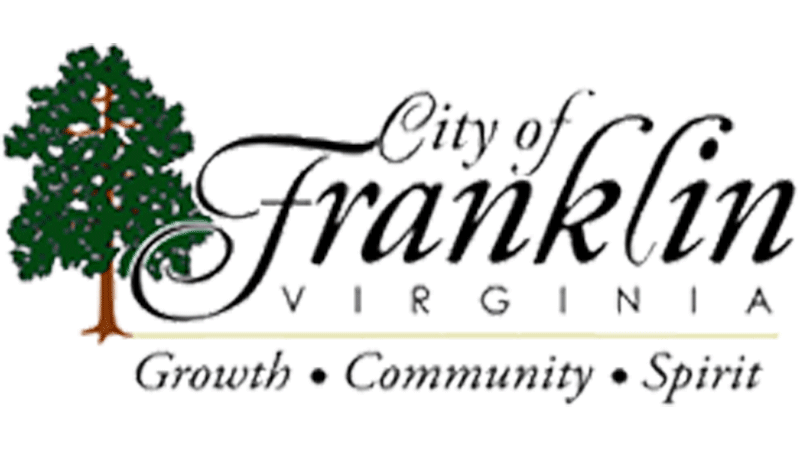School Board reviews superintendent survey
Published 12:04 pm Saturday, March 8, 2014
FRANKLIN—The Franklin City Public School Board went over the community’s survey results regarding the superintendent criteria at Wednesday’s called meeting.
The number of people to take the survey was 330. Of the quiz takers, 40.6 percent identified themselves as parents, 10.9 percent as teachers, 8.2 percent as chamber of commerce member or business, 7.6 percent as school employee, 4.2 percent as civic organization member and 24.5 percent were identified as other.
Regarding the first portion, education and training, 51.7 percent thought it should be required for the superintendent to have a doctorate, while 39.9 percent thought it should be preferred. 8.4 percent thought a doctorate was not important.
Experience as a superintendent 58 percent thought it should be required, and 33.3 percent preferred that.
Franklin voters to the tune of 55.7 percent thought that having experience as a chief executive officer other than in a school setting was not important.
People also thought the superintendent should have experience in the school level. 55.9 percent thought he or she should have experience as a principal as a requirement. People preferred that the superintendent have experience teaching at high school (45.7 percent) and the elementary level (47.4).
Having work experience in Virginia would be a requirement, but it was close – 38.4 percent said it was required, while 33.1 percent thought it should be preferred and 28.4 percent thought it was not important.
Having residency in the school division was one of the most important. 63.4 percent of people thought it should be required that the superintendent live in Franklin.
In leadership and management skills, voters were asked to rank their priorities 1 to 3. Writing and speaking ability (60 percent), decisive leader (58.2), and visionary and creative thinker (36.9) were all number 1 priorities. Organized and efficient was a number 2 priority. Risk taker, high community profile, motivator, analytical, relies on data, facilitates consensus among groups, and team player were all number three priorities.
Personal characteristics were also ranked on a priority 1 to 3. Sense of humor, confident, enthusiastic and consistent were all number one priorities. Good listener, accessible, works behind the scenes, and intellectual were number 2. Patient, creative, caring and influential were ranked as the third priority.
Board superintendent relations were next considered. Understanding the differences between policy and administration and acts accordingly and can lead the board in goal-setting and planning were the top priorities. Effectively mandating and accommodating different perspectives and willingness to assume a lead role in decision making while keeping the board informed were next.
Regarding staff relations, having a process for recruiting and selecting top quality staff members, maintaining open channels of communication to and from staff and knowing the law concerning personnel policies and procedures were top ranked.
Franklin ranked “Relates well to a variety of community groups” and “Effectively advocating school issues and needs” as tops for community relations.
Developing and explaining rationale for the school’s budget to the board and local officials were most important for school finance.
In areas of expertise, Franklin thought budget and finance, curriculum and instruction, and school reform were the most important. School facility planning and construction, technology, increasing/declining enrollment, special education and staff development and evaluation were secondary. Tertiary areas of expertise were multi-cultural programs, staff development, community/media relations, support services, business partnerships and other.
Some of the other respondents include all of the above, discipline and bullying, and one also wanted to see more involvement in the community.
“You can’t be a superintendent in name only,” the respondent said. “You have to be a true part of the culture in order to truly understand it in order for change to happen.”
Amongst the first things respondents want a new superintendent to fix is student performance and getting the schools out of priority status.
“Our next superintendent must address the poor accreditation status of our schools,” someone said. “This means he/she must dig into the data, down to the classroom level and find out where we need to make changes in curriculum, staffing, etc. The numbers don’t lie – dig into the data.”
“The new superintendent must seek to gain a better understanding of the students, not just from an administrative perspective, but from the student’s perspective also,” another said. “More specifically, an emphasis must be placed on how each student learns best as opposed to why they are not learning.”
Some respondents also wanted to see a clean sweep at central office.
“Dismiss HR manager and others who are under-performing. Just as a new coach changes the staff.”
Bullying, discipline issues, teacher morale and communication issues with the public were also topics.
“Making sure teachers are valued and not overworked,” one said on teacher morale. “He or she should reward the small success. Get rid of the good old boys club and take care of the children and the teachers.”
“Franklin schools have a very poor reputation,” one respondent said in regards to communication issues. “Need to determine if that reputation is well-deserved and if so, how to turn it around. Parents don’t want their kids in Franklin and there is usually either a perception problem, or else a serious problem the parents are concerned about. Need to figure out what those things are and counter them so we can get some of the better students back into Franklin.”





